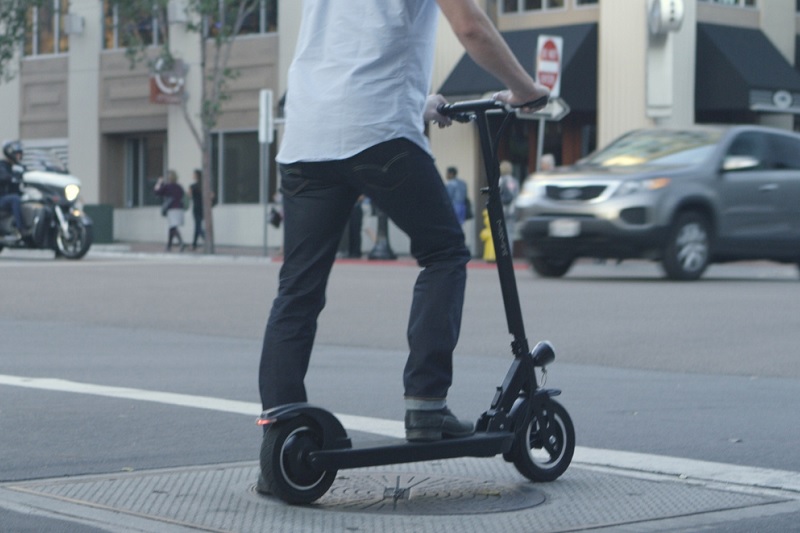
A modal shift from motor vehicles towards electric bicycles and scooters would improve road safety in urban areas, a new report has concluded.
Published by the International Transport Forum (ITF), the report examines the safety aspects associated with the increasing use of e-scooters and other forms of ‘micromobility’ in cities.
The report found a trip by a car or motorcycle in dense urban areas is ‘much more likely’ to result in the death of a road user than a light micro-vehicle, such as an e-scooter.
It also concludes that riding an e-scooter is no more dangerous than riding a bike, with similar levels of risks involved.
However, the report goes on to say that a shift from walking towards light micro-vehicles would have a negative effect on road safety.
Allow e-scooters to use dedicated bike lanes
The ITF report sets out a list of safety improvements for micromobility, relating to issues such as infrastructure, vehicle design and training.
It calls on authorities to create a protected and connected network, while also allowing micro-vehicles to be used on dedicated bike lanes.
However, the report says use of micro-vehicles on pavements should be banned – or subject to a low, enforced speed limit.
The authors say that authorities should also ensure that car, bus and truck drivers are trained to avoid crashes with micro-vehicle riders – with relevant training mandatory for obtaining a driving license.
Training to provide children with the skills to safely operate a micro-vehicle should be part of the school curriculum, while all adults should also have access to affordable safety training.
The current position
Under current UK law, it is illegal to use a powered transporter – such as an electric scooter – on a public road or other prohibited space, including pavements and cycle lanes.
However, the Government could soon move to legalise their use on roads and cycle lanes – and is expected to launch a consultation on how to regulate e-scooters and ensure safety.
The consultation is expected to suggest e-scooters should be treated like bicycles and be allowed on roads and in cycle lanes. Their speed would be limited to 15.5mph.
The headline from this report (that a shift from cars to e-scooters would be good for safety) by should be treated with great caution. It is not borne out by the details in the report. More importantly, there is precious little evidence that e-scooters trips in Europe come from car trips: they nearly all come from walk, cycle and public transport – modes which are safer than e-scooters and which have significant active travel benefits – which e-scooters do not.
The report is one for the ITF’s Corporate Sponsorship Board – which includes Bird, ExxonMobil and Uber.
Ironically, it was launched at the 3rd Global Ministerial Conference on Road Safety where the Danish Transport Minister announced that they have found that head injuries to e-scooter riders are 8x the level of head injuries to cyclists. So Denmark will be introducing mandatory helmets wearing for e-scooter riders.
David Davies, London
+6